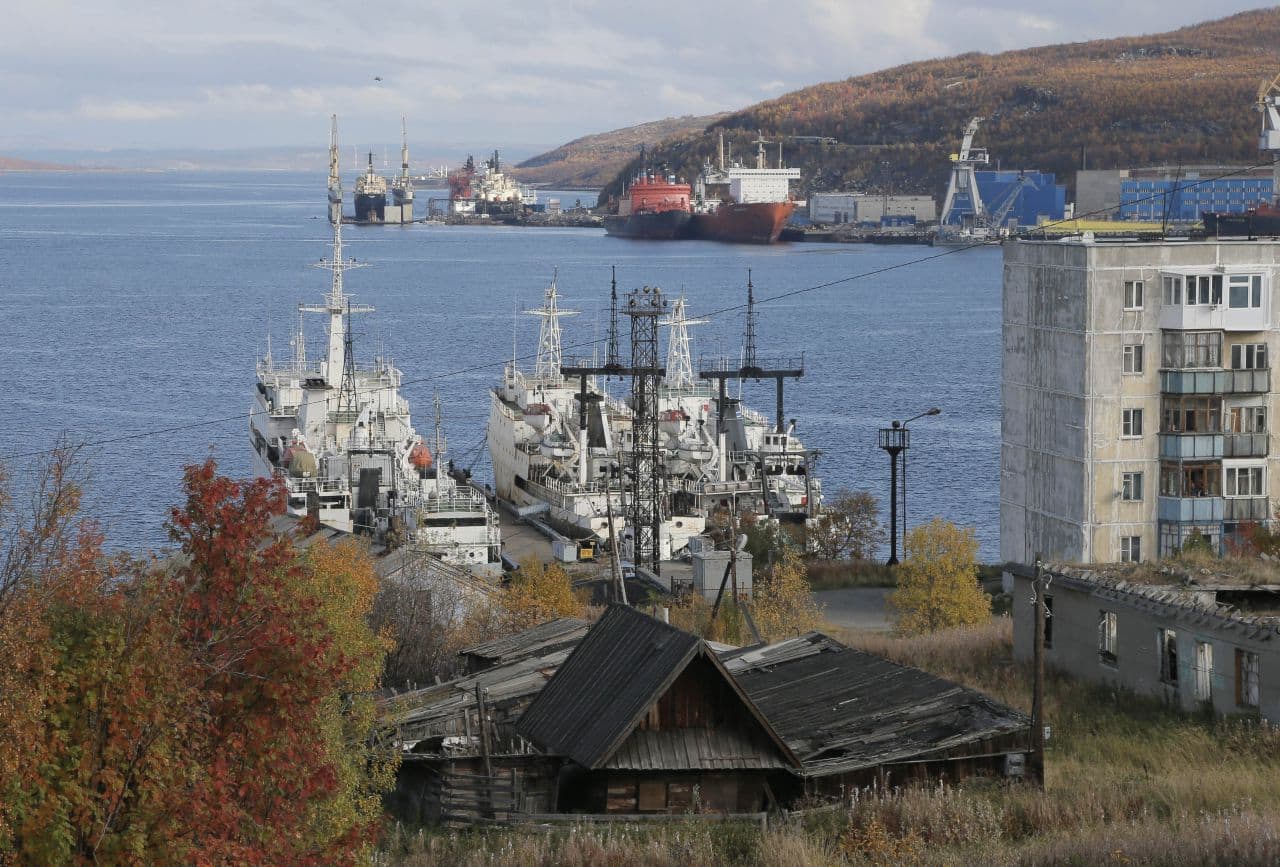Advertisement
The Arctic Rush
ResumeThe Arctic Circle is opening up at a gallop as the ice disappears. Oil, gold, armies, spies. Big opportunities and fear of the consequences.

In Seattle this week, kayakers saying no to a big new Shell Oil drilling rig in the Arctic. Protesters blocking the terminal. In Connecticut, the President saying global warming – climate change – is a very real security threat to the USA. And in the Arctic itself, as spring turns to summer, yet another season in which the Arctic ice cap shrinks and shrinks. And hungry would-be developers from many nations are moving in. The Arctic melt is essentially opening a new ocean. New resources, and risks. Up next, On Point: the new ocean at the top of the world, and the rush for Arctic riches.
– Tom Ashbrook
Guests
Emily Johnston, a principal organizer of the ShellNO movement. She works for the climate action group 350 Seattle. Read her op-ed on the Seattle protests here.
Michael Byers, Professor at University of British Columbia. He holds the Canada Research Chair in Global Politics and International Law and is the author of "International Law and the Arctic" and Who Owns the Arctic?"
James Bamford, Author and Investigative Reporter. His article Frozen Assets was published last week at Foreign Policy. He is also the author of several books about the NSA and our country's national security apparatus, including "The Shadow Factory: The NSA from 9/11 to the Eavesdropping on America." (@washauthor)
Ben Ayliffe, Head of Greenpeace's Arctic campaign. He negotiated the release of the Arctic 30, crewmembers of the Greenpeace ship Arctic Sunrise who were held for three months in 2013 by Russia after they protested at a Russian Arctic oil platform owned by Gazprom. (@benayliffe)
From Tom’s Reading List
The New York Times: Russia and U.S. Find Common Cause in Arctic Pact - "The United States, Russia and three other nations with Arctic Ocean coastlines agreed last year to regulate trawling in Arctic waters newly free of ice. But the deep freeze in East-West relations after Russia’s annexation of Crimea delayed the expected signing. The day after Secretary of State John Kerry met with President Vladimir V. Putin in the Black Sea resort of Sochi last week, Russia announced it would sign the fishing agreement....The fishing deal was negotiated in February 2014 among Russia, Norway, Canada, the United States and Denmark, which controls Greenland, where the talks were held."
Foreign Policy: Frozen Assets: The Newest Front in Global Espionage Is One of the Least Habitable Locales on Earth — The Arctic - "For the countries that border the Arctic Ocean— Russia, the United States, Canada, Norway, and Denmark (through its territory of Greenland)—an accessible ocean means new opportunities. And for the states that have their sights set on the Lomonosov Ridge—possibly all five Arctic Ocean neighbors but the United States—an open ocean means access to much of the North Pole’s largesse. First, though, they must prove to the United Nations that the access is rightfully theirs. Because that process could take years, if not decades, these countries could clash in the meantime, especially as they quietly send in soldiers, spies, and scientists to collect information on one of the planet’s most hostile pieces of real estate.
Slate: Kayaktivism: These boats protesting oil drilling are teh perfect symbol of climate change activism - "...[H]undreds of climate activists took to the water to surround Shell’s Polar Pioneer, the 307-foot-tall flagship of the company’s newly resurgent Arctic drilling fleet. The protesters’ fragile presence, in their small and colorful boats, was a bright contrast to the ominous oil-drilling equipment. The kayaktivism in Seattle was a response to the Obama administration’s conditional approval last week of the resumption of offshore oil drilling in the Arctic. That decision came under immediate fire by environmentalists, among them Bill McKibben, who in a New York Times op-ed called it 'climate denial of the status quo sort.'"
This program aired on May 21, 2015.